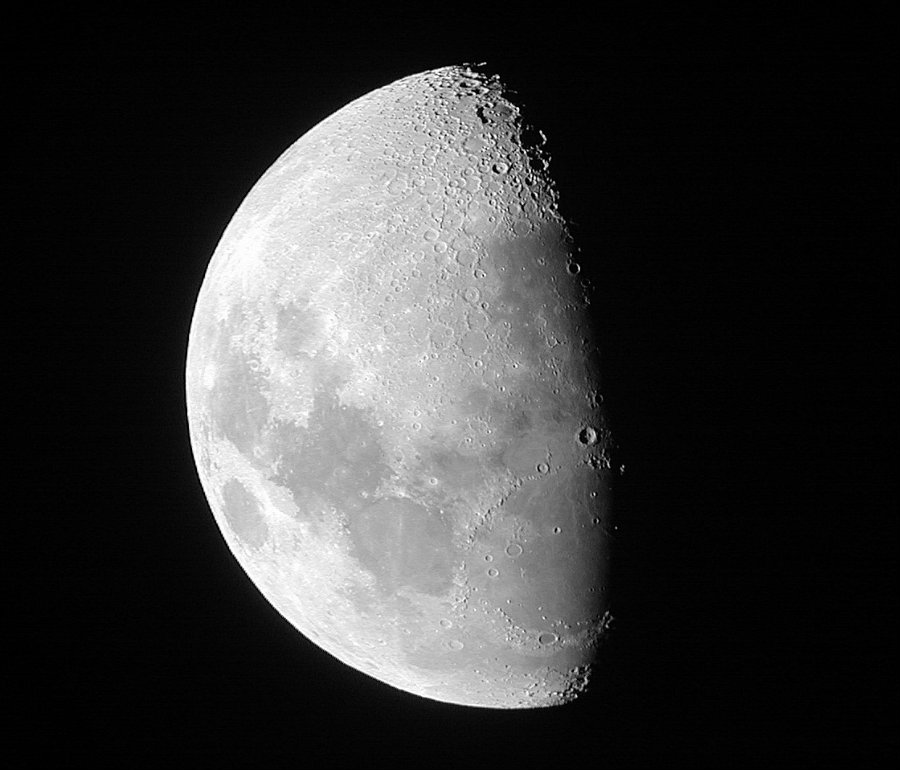According to a released white paper, China is expanding their space activities in the next few years with missions that include the Moon and its dark side and the Mars planet. The Chinese National Cabinet explained that ”to explore the vast cosmos, develop the space industry and build China into a space power” is now one of their priorities.
The information published this Tuesday showed how the Chinese government plans to expand their space activity program significantly. In the document, there is confirmation of the rumors about China wanting to explore the far side of the moon. The federal cabinet set the next five years as the period necessary to accomplish that goal, and they hope it takes just two years to develop the project.

The white paper also revealed the intention of the project regarding outer space investigation. The mission called Chang’e 4 intends to implement geological research and low-frequency radio astronomy, through a rover, to explain the genesis of the moon and its subsequent evolution century after century.
China’s Chang’e 4 mission would not be the first time that this country has a moon-related project. Back in 2013, China successfully sent a rover to the moon, becoming the first country in 40 years to land in the natural satellite. While the last NASA landing on the moon was in the year 1972, and they left with no plans of coming back, China wants to travel there several times in the next years.
According to He Qisong, a space security expert from the Shanghai University of Political Science and Law, China’s goal of becoming the first country ever to land softly on the far side of the moon only proves that China has developed its technology considerably in the last decade. Before they land a probe on the far side of the moon, China wants to conduct a mission to the moon in 2017 as well.
Chinese space innovations: Goals and needs
Along with the Chinese cabinet decision of expanding the space technology program, there was a series of achievements that must be fulfilled in the next years and that are considered as crucial. The primary concern of the country is the fact of being left behind in the consecutive space race when comparing them with another space agencies like U.S. NASA, Russian Roscosmos or European ESA.
“Over the past 60 years of remarkable development since its space industry was established in 1956, China has made great achievements in this sphere, including the development of atomic and hydrogen bombs, missiles, man-made satellites, manned spaceflight and lunar probes,” the cabinet members wrote in the white paper in a way of letting know that China is an important participant in the space investigation field.
On the matter of space activity expansion, China has put Mars on their radar. They hope to develop a project that allows the sending of a probe to the red planet in the year 2020. That mission wishes to recollect information that allows scientist investigation regarding the origin of the solar system as well as search for life on Mars. They also intend to bring back Mars surface samples, the analysis of asteroid material and the exploration of planet Jupiter with the fly-by mechanism.
Back in November, China sent two astronauts to the Tiangong 2, an experimental space station. These two astronauts spent one month aboard and participated in the longest Chinese mission in outer space ever conducted. This success comes as a precedent for their own space station set to be developed in the next six years, as part of their technologic expansion. The paper doesn’t talk about the rumor of a manned Chinese space mission to the moon to be performed by the year 2036.
National Security is also a priority
According to official declarations from the Chinese government, their national space program must be oriented toward the protection of the country. This objective will be realized peacefully, as China considers that the space race can happen without the use of weapons and hard force.
“China always adheres to the principle of the use of outer space for peaceful purposes, and opposes the weaponisation of or an arms race in outer space,” the cabinet explains in the paper. “It (the program) has to meet the demands of economic, scientific and technological development, national security and social progress.”
Those declarations don’t elaborate anything regarding security projects to be made in their space program expansion. However, they do say that weapon development has been a topic in China’s projects in the past decades when achieving certain projects like atomic and hydrogen bombs and missiles.
For this reason, the U.S. Defense Department has said that they cannot stand by to expanding space programs that could put in danger the global security and that the U.S. will continue to develop programs aimed to prevent any country that wants to convert space in an armed scenario.
Source: Spaceref
